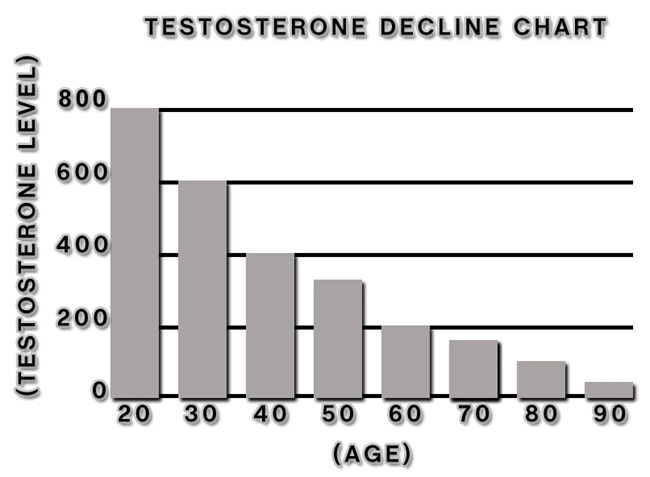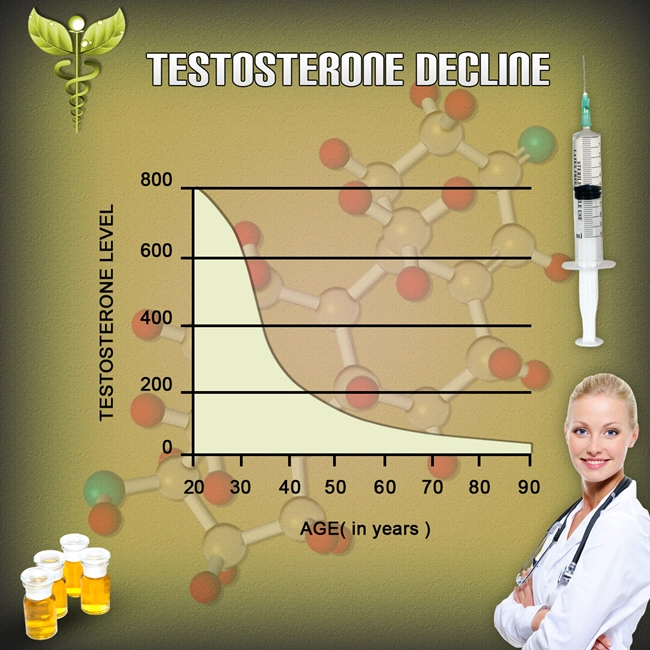
Introduction
Diabetes, a chronic metabolic disorder, poses a significant health challenge in the United States, particularly among the male population. Recent research has begun to explore the potential benefits of testosterone enanthate, a commonly used testosterone replacement therapy, in managing diabetes. This article delves into the role of testosterone enanthate in diabetes management, focusing on its implications for American males.
Understanding Diabetes and Its Impact on American Males
Diabetes mellitus, characterized by elevated blood glucose levels, affects millions of Americans. According to the American Diabetes Association, approximately 13% of men in the U.S. have diabetes, with a significant portion undiagnosed. The condition increases the risk of cardiovascular diseases, kidney failure, and other severe health complications. Effective management strategies are crucial to mitigate these risks and improve quality of life.
The Role of Testosterone in Metabolic Health
Testosterone, the primary male sex hormone, plays a vital role in various physiological processes, including muscle mass maintenance, bone density, and metabolic regulation. Low testosterone levels, or hypogonadism, have been linked to insulin resistance and an increased risk of developing type 2 diabetes. This connection has sparked interest in the potential therapeutic use of testosterone enanthate in diabetes management.
Testosterone Enanthate: An Overview
Testosterone enanthate is a long-acting injectable form of testosterone used primarily for testosterone replacement therapy in men with hypogonadism. It is administered intramuscularly and provides a sustained release of testosterone, helping to maintain stable hormone levels. The drug's long half-life makes it a convenient option for patients requiring ongoing testosterone supplementation.
Clinical Evidence Supporting Testosterone Enanthate in Diabetes Management
Several studies have investigated the effects of testosterone enanthate on glycemic control and insulin sensitivity in men with diabetes. A notable study published in the *Journal of Clinical Endocrinology & Metabolism* found that testosterone replacement therapy improved insulin sensitivity and reduced HbA1c levels in men with type 2 diabetes and hypogonadism. These findings suggest that testosterone enanthate could be a valuable adjunct to traditional diabetes management strategies.
Mechanisms of Action
The beneficial effects of testosterone enanthate on diabetes management are thought to be mediated through several mechanisms. Testosterone improves insulin sensitivity by enhancing glucose uptake in skeletal muscle and reducing visceral fat, a known risk factor for insulin resistance. Additionally, testosterone may exert anti-inflammatory effects, further contributing to improved metabolic health.
Considerations and Potential Risks
While the potential benefits of testosterone enanthate in diabetes management are promising, it is essential to consider the potential risks and side effects. Common side effects include acne, fluid retention, and an increased risk of erythrocytosis (elevated red blood cell count). Long-term use may also be associated with cardiovascular risks, necessitating careful monitoring and individualized treatment plans.
Integrating Testosterone Enanthate into Diabetes Management
For American males with diabetes and hypogonadism, testosterone enanthate may offer a dual benefit by addressing both hormonal and metabolic health. However, its use should be integrated into a comprehensive diabetes management plan that includes lifestyle modifications, dietary changes, and other pharmacological interventions as needed. Collaboration between endocrinologists and primary care physicians is crucial to ensure safe and effective treatment.
Future Directions and Research Needs
The role of testosterone enanthate in diabetes management is an evolving field, with ongoing research aimed at elucidating its long-term effects and optimal dosing strategies. Future studies should focus on larger, more diverse populations to confirm the findings and explore potential sex-specific differences in treatment response. Additionally, research into the combined effects of testosterone enanthate with other diabetes medications could provide further insights into its therapeutic potential.
Conclusion
Testosterone enanthate holds promise as a novel approach to managing diabetes in American males, particularly those with concurrent hypogonadism. By improving insulin sensitivity and glycemic control, this therapy could play a significant role in reducing the burden of diabetes and its associated complications. As research continues to unfold, testosterone enanthate may become an integral part of personalized diabetes management strategies, offering new hope for affected individuals.
Contact Us Today For A Free Consultation
Dear Patient,
Once you have completing the above contact form, for security purposes and confirmation, please confirm your information by calling us.
Please call now: 1-800-380-5339.
Welcoming You To Our Clinic, Professor Tom Henderson.

- Testosterone Enanthate: Benefits, Risks, and Ethics in American Male Athletes' Performance [Last Updated On: February 19th, 2025] [Originally Added On: February 18th, 2025]
- Testosterone Enanthate: Enhancing Muscle, Reducing Fat for Weight Management in American Men [Last Updated On: March 17th, 2025] [Originally Added On: March 17th, 2025]
- Personalizing Testosterone Enanthate Therapy for Optimal Health Outcomes in American Men [Last Updated On: March 17th, 2025] [Originally Added On: March 17th, 2025]
- Testosterone Enanthate: A Solution for Sexual Dysfunction in American Males [Last Updated On: March 18th, 2025] [Originally Added On: March 18th, 2025]
- Testosterone Enanthate: Cycle, Benefits, Risks, and Legal Issues for American Athletes [Last Updated On: March 18th, 2025] [Originally Added On: March 18th, 2025]
- Testosterone Enanthate: A Promising Treatment for Depression in American Men [Last Updated On: March 18th, 2025] [Originally Added On: March 18th, 2025]
- Testosterone Enanthate: Enhancing Cognitive Function in American Men [Last Updated On: March 19th, 2025] [Originally Added On: March 19th, 2025]
- Testosterone Enanthate: Impacts on Prostate Health in American Males [Last Updated On: March 19th, 2025] [Originally Added On: March 19th, 2025]
- Testosterone Enanthate: Benefits, Risks, and Management for American Men [Last Updated On: March 19th, 2025] [Originally Added On: March 19th, 2025]
- Testosterone Enanthate's Impact on Sleep Quality in American Men: Benefits and Risks [Last Updated On: March 20th, 2025] [Originally Added On: March 20th, 2025]
- Long-term Testosterone Enanthate Use: Health Risks for American Men [Last Updated On: March 20th, 2025] [Originally Added On: March 20th, 2025]
- Testosterone Enanthate: A Promising Treatment for Osteoporosis in American Men [Last Updated On: March 21st, 2025] [Originally Added On: March 21st, 2025]
- Testosterone Enanthate: Medical Uses, Myths, and Performance Risks in American Males [Last Updated On: March 22nd, 2025] [Originally Added On: March 22nd, 2025]
- Testosterone Enanthate's Impact on Male Fertility: Insights for American Men on TRT [Last Updated On: March 22nd, 2025] [Originally Added On: March 22nd, 2025]
- Testosterone Enanthate: A Promising Therapy for Chronic Pain in American Males [Last Updated On: March 23rd, 2025] [Originally Added On: March 23rd, 2025]
- Testosterone Enanthate: Medical Uses, Cultural Perceptions, and Ethical Concerns in the U.S. [Last Updated On: March 23rd, 2025] [Originally Added On: March 23rd, 2025]
- Testosterone Enanthate: A Potential Aid in Stress Management for American Men [Last Updated On: March 23rd, 2025] [Originally Added On: March 23rd, 2025]
- Testosterone Enanthate: Enhancing Injury Recovery in American Males - Benefits and Risks [Last Updated On: March 23rd, 2025] [Originally Added On: March 23rd, 2025]
- Testosterone Enanthate: Enhancing Immune Function in American Men [Last Updated On: March 23rd, 2025] [Originally Added On: March 23rd, 2025]
- Testosterone Enanthate: Impacts on Hair Growth and Loss in American Men [Last Updated On: March 24th, 2025] [Originally Added On: March 24th, 2025]
- Testosterone Enanthate: Enhancing Vitality in Aging American Men [Last Updated On: March 24th, 2025] [Originally Added On: March 24th, 2025]
- Ethical Dilemmas of Testosterone Enanthate Use in American Males: Medical vs. Enhancement [Last Updated On: March 24th, 2025] [Originally Added On: March 24th, 2025]
- Optimizing Testosterone Enanthate Therapy: Dosage, Monitoring, and Lifestyle Integration [Last Updated On: March 24th, 2025] [Originally Added On: March 24th, 2025]
- Testosterone Enanthate's Impact on Appetite and Digestion in American Men [Last Updated On: March 24th, 2025] [Originally Added On: March 24th, 2025]
- Testosterone Enanthate: Enhancing Body Composition in American Males - Benefits and Risks [Last Updated On: March 24th, 2025] [Originally Added On: March 24th, 2025]
- Testosterone Enanthate's Impact on Vision and Eye Health in American Males: A Review [Last Updated On: March 24th, 2025] [Originally Added On: March 24th, 2025]
- Testosterone Enanthate's Impact on Blood Sugar Levels in American Men: A Comprehensive Analysis [Last Updated On: March 24th, 2025] [Originally Added On: March 24th, 2025]
- Testosterone Enanthate's Impact on Mental Clarity in American Males: Benefits and Risks [Last Updated On: March 24th, 2025] [Originally Added On: March 24th, 2025]
- Testosterone Enanthate: Enhancing Endurance in American Male Athletes - Benefits and Risks [Last Updated On: March 25th, 2025] [Originally Added On: March 25th, 2025]
- Testosterone Enanthate: Benefits, Limitations, and Management for American Men [Last Updated On: March 25th, 2025] [Originally Added On: March 25th, 2025]
- Testosterone Enanthate Withdrawal: Symptoms, Management, and Long-Term Considerations [Last Updated On: March 25th, 2025] [Originally Added On: March 25th, 2025]
- Testosterone Enanthate: A Promising Therapy for Obesity in American Males [Last Updated On: March 25th, 2025] [Originally Added On: March 25th, 2025]
- Testosterone Enanthate: A Dual Approach to Treating Anemia in Hypogonadal Men [Last Updated On: March 25th, 2025] [Originally Added On: March 25th, 2025]
- Testosterone Enanthate Therapy: Benefits and Risks for Men Over 50 [Last Updated On: March 25th, 2025] [Originally Added On: March 25th, 2025]
- Testosterone Enanthate Boosts Skin Elasticity in American Males: Benefits and Risks [Last Updated On: March 25th, 2025] [Originally Added On: March 25th, 2025]
- Testosterone Enanthate: Enhancing Mood in American Males with Low Testosterone [Last Updated On: March 26th, 2025] [Originally Added On: March 26th, 2025]
- Testosterone Enanthate's Impact on Joint Health in American Men: Benefits and Risks [Last Updated On: March 26th, 2025] [Originally Added On: March 26th, 2025]
- Testosterone Enanthate: Benefits, Risks, and Cost-Benefit Analysis for American Males [Last Updated On: March 27th, 2025] [Originally Added On: March 27th, 2025]
- Testosterone Enanthate: A Vital Therapy for Muscle Wasting in American Men [Last Updated On: March 27th, 2025] [Originally Added On: March 27th, 2025]
- Testosterone Enanthate's Impact on Liver Health in American Men: Monitoring and Management [Last Updated On: March 27th, 2025] [Originally Added On: March 27th, 2025]
- Testosterone Enanthate: A Potential Treatment for Chronic Fatigue Syndrome in American Males [Last Updated On: March 27th, 2025] [Originally Added On: March 27th, 2025]
- Testosterone Enanthate Therapy: Enhancing American Veterans' Health and Well-being [Last Updated On: March 28th, 2025] [Originally Added On: March 28th, 2025]
- Testosterone Enanthate's Impact on Cardiovascular Endurance in American Men: Risks and Benefits [Last Updated On: March 28th, 2025] [Originally Added On: March 28th, 2025]
- Testosterone Enanthate: A Novel Approach to Managing Allergies in American Males [Last Updated On: March 28th, 2025] [Originally Added On: March 28th, 2025]
- Testosterone Enanthate: Enhancing Post-Surgical Recovery in American Men [Last Updated On: March 28th, 2025] [Originally Added On: March 28th, 2025]
- Testosterone Enanthate's Impact on Dental Health in American Males: A Comprehensive Review [Last Updated On: March 28th, 2025] [Originally Added On: March 28th, 2025]
- Testosterone Enanthate Therapy: Impacts on Life Expectancy and Quality of Life in Men [Last Updated On: March 28th, 2025] [Originally Added On: March 28th, 2025]
- Testosterone Enanthate: A Promising Treatment for Autoimmune Disorders in American Males [Last Updated On: March 29th, 2025] [Originally Added On: March 29th, 2025]
- Testosterone Enanthate's Impact on Hearing Health in American Men: A Review [Last Updated On: March 29th, 2025] [Originally Added On: March 29th, 2025]
- Testosterone Enanthate: Enhancing Respiratory Function in American Men [Last Updated On: March 30th, 2025] [Originally Added On: March 30th, 2025]
- Testosterone Enanthate Therapy: Impacts on Kidney Function in American Males [Last Updated On: March 30th, 2025] [Originally Added On: March 30th, 2025]
- Testosterone Enanthate: Emerging Treatment for Gastrointestinal Disorders in American Males [Last Updated On: March 31st, 2025] [Originally Added On: March 31st, 2025]
- Testosterone Enanthate: Enhancing Neurological Health in American Men [Last Updated On: April 3rd, 2025] [Originally Added On: April 3rd, 2025]
- Testosterone Enanthate: A New Approach to Managing Hypertension in American Males [Last Updated On: April 3rd, 2025] [Originally Added On: April 3rd, 2025]
- Testosterone Enanthate: Benefits, Fertility Risks, and Hormonal Impact in American Males [Last Updated On: April 4th, 2025] [Originally Added On: April 4th, 2025]
- Testosterone Enanthate's Role in Managing Respiratory Disorders in American Males [Last Updated On: April 6th, 2025] [Originally Added On: April 6th, 2025]
- Testosterone Enanthate's Impact on Adrenal Health in American Males: A Comprehensive Analysis [Last Updated On: April 7th, 2025] [Originally Added On: April 7th, 2025]
- Testosterone Enanthate's Impact on Immune Function in American Males: A Comprehensive Review [Last Updated On: April 8th, 2025] [Originally Added On: April 8th, 2025]
- Testosterone Enanthate Therapy: Benefits, Risks, and Endocrine System Management [Last Updated On: April 9th, 2025] [Originally Added On: April 9th, 2025]
- Testosterone Enanthate Therapy's Impact on Thyroid Function in American Men [Last Updated On: April 9th, 2025] [Originally Added On: April 9th, 2025]
- Testosterone Enanthate: Emerging Dermatological Benefits for American Men [Last Updated On: April 9th, 2025] [Originally Added On: April 9th, 2025]
- Testosterone Enanthate's Impact on Cardiovascular Health in American Males: A Review [Last Updated On: April 10th, 2025] [Originally Added On: April 10th, 2025]
- Testosterone Enanthate: Enhancing Musculoskeletal Health in American Men [Last Updated On: April 10th, 2025] [Originally Added On: April 10th, 2025]
- Testosterone Enanthate's Impact on Gastrointestinal Health in American Males [Last Updated On: April 11th, 2025] [Originally Added On: April 11th, 2025]
- Testosterone Enanthate: Enhancing Hematological Health in American Men [Last Updated On: April 12th, 2025] [Originally Added On: April 12th, 2025]
- Testosterone Enanthate: Managing Metabolic Disorders in American Males [Last Updated On: April 12th, 2025] [Originally Added On: April 12th, 2025]
- Testosterone Enanthate: Exploring Neurological Benefits in American Males [Last Updated On: April 13th, 2025] [Originally Added On: April 13th, 2025]
- Testosterone Enanthate Boosts Immune Function in American Men: Research Insights [Last Updated On: April 16th, 2025] [Originally Added On: April 16th, 2025]
- Testosterone Enanthate: Enhancing Gastrointestinal Health in American Men [Last Updated On: April 16th, 2025] [Originally Added On: April 16th, 2025]
- Testosterone Enanthate: Vital Role in Managing Hypogonadism and Endocrine Disorders [Last Updated On: April 16th, 2025] [Originally Added On: April 16th, 2025]
- Testosterone Enanthate's Metabolic Impact on American Males: Benefits and Risks [Last Updated On: April 17th, 2025] [Originally Added On: April 17th, 2025]
- Testosterone Enanthate Therapy: Benefits, Risks, and Reproductive Health Impact [Last Updated On: April 17th, 2025] [Originally Added On: April 17th, 2025]
- Testosterone Enanthate's Impact on Respiratory Health in American Males: A Review [Last Updated On: April 17th, 2025] [Originally Added On: April 17th, 2025]
- Testosterone Enanthate Therapy: Cardiovascular Benefits and Risks in American Men [Last Updated On: April 17th, 2025] [Originally Added On: April 17th, 2025]
- Testosterone Enanthate's Dermatological Effects on American Males: Acne, Hair Loss, and Skin Health [Last Updated On: April 18th, 2025] [Originally Added On: April 18th, 2025]
- Testosterone Enanthate: A Promising Treatment for Musculoskeletal Disorders in American Males [Last Updated On: April 18th, 2025] [Originally Added On: April 18th, 2025]
- Testosterone Enanthate: A Promising Treatment for Hematological Disorders in American Men [Last Updated On: April 20th, 2025] [Originally Added On: April 20th, 2025]









